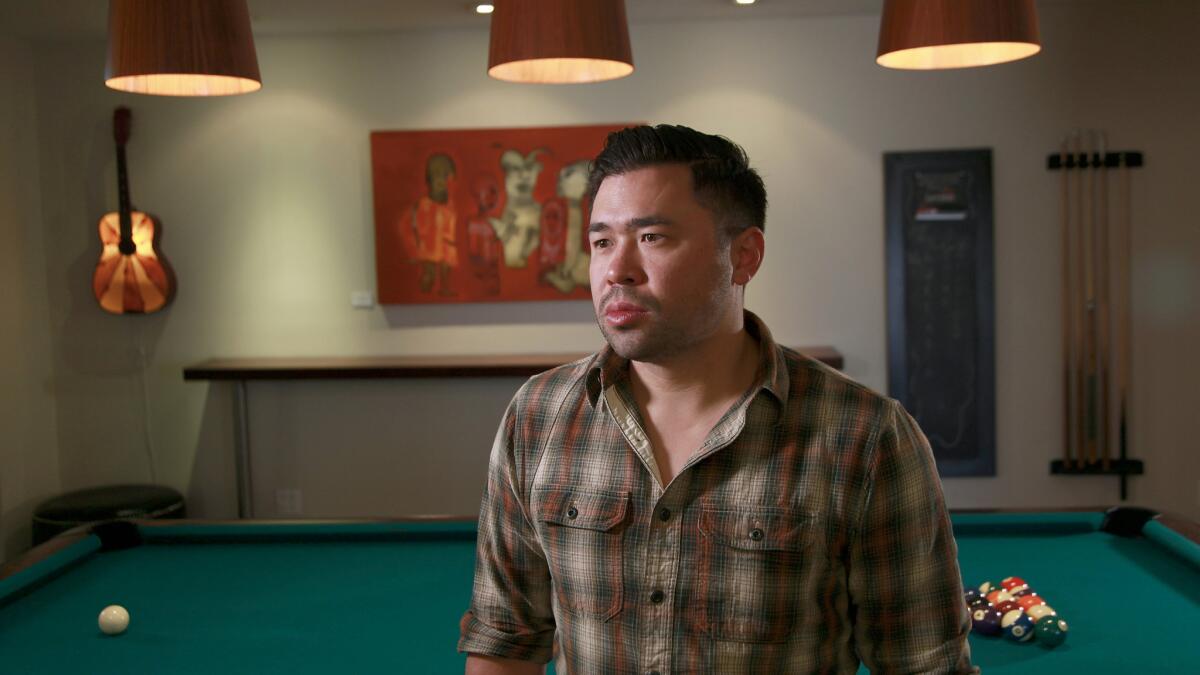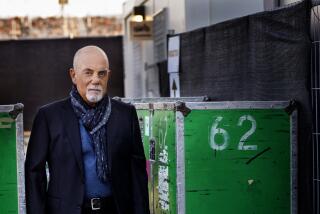Meet Malay, the nurturing record producer trusted by Frank Ocean and Zayn

Music producer and song writer Malay credits Pink Floydâs album âDark Side of the Moonâ as one of his early musical influences.
Record producers use various metaphors to explain what they do. Some compare the job to being an interpreter, others to directing traffic. Malay, who was closely involved with the creation of two of 2016âs most talked-about albums, thinks of himself as a babysitter.
âWhen Iâm making a record with someone, the record is basically their child,â he said recently. âSo how do you get them to trust someone they just met?
âItâs like, âHey, I donât really know you â but want me to take care of your baby?ââ
For Frank Ocean and Zayn, that prospect was a reassuring one.
The two singers, among popâs most guarded and skeptical, called separately on Malay this year for help realizing complicated ideas: Ocean with his album âBlonde,â the R&B starâs long-awaited follow-up to his Grammy-winning 2012 debut, âChannel Orange,â which Malay also co-produced; and Zayn with âMind of Mine,â the first solo effort by the former member of the British boy band One Direction.
Both projects debuted at No. 1, with âBlondeâ earning the yearâs fourth-biggest sales week. And âMind of Mineâ is likely to turn up when nominations for the 59th Grammy Awards are announced Tuesday. (âBlondeâ would as well if Ocean hadnât declined to submit his album for consideration in what heâs described as a protest of the Grammysâ âdatedâ awarding system.)
But more important to Malay, who also stands a chance at being nominated as producer of the year, is that the albums reflect the sense of freedom and security each artist felt while writing and recording with him.
You can hear it in âFlower,â a gentle acoustic ballad from Zaynâs record with lyrics in his fatherâs language of Urdu. Itâs there too in âNikes,â a haunted electro-soul track in which Ocean sings about identifying with the late Trayvon Martin because he âlook just like me.â

Yet those are isolated examples of what distinguishes Malayâs approach. At a moment when many high-level record makers promise a signature sound or access to a network of established stars (for buzzy guest appearances), this soft-spoken 38-year-old seems to offer his clients a kind of psychic safe space to experiment.
âHeâs extremely even-keeled â itâs never about the Malay show,â said Zach Katz, who heads up U.S. operations for the music publishing company BMG. âWhen you get into a room with a creative leader, you have to have a real collaborator like Malay who understands their vision and can bring it to the world.
âSome people donât pick up on those nuances. But Malay always understands who heâs in the room with.â
If Malay has become one of popâs key nurturers, perhaps thatâs because heâs spent half his life in the role. Born James Ho, he grew up in Bellingham, Wash., where his Malaysian father exposed him to classic rock by Jimi Hendrix and Pink Floyd.
âIâll never forget hearing the beginning of âPurple Haze,ââ he said in an interview at a recording studio in North Hollywood. His dad, a collector of hi-fi stereo equipment, had set Malay up with a pair of nice headphones and pressed play.
âAnd right away I pulled them off and was like, âWhat is that sound?â It just blew my mind.â
Though heâd shown potential as a wrestler in school, Malay eventually quit the sport to concentrate on music. Heâd taught himself guitar and piano and was making money playing with a local reggae band. Then he had a son at age 19.
âThat was becoming an adult overnight,â he said. âSuddenly youâre not the most important person in the world.â
To support his young family, he ran an espresso cart at a medical plaza in Bellingham. Work started early every morning, but heâd finish in time to spend the afternoons and evenings learning to use digital recording equipment.
His skills quickly developed to the point that a friend from Seattle, hip-hop producer Jake One, hired Malay in the mid-2000s to help with production he was doing for rapper 50 Centâs G-Unit crew. That led to a move to New York, where he scraped up gigs producing acts from Sean âPuff Daddyâ Combsâ MTV reality show âMaking the Band.â
Having separated from his sonâs mother (they have a younger daughter as well), Malay then moved to Atlanta, where he collaborated with artists including John Legend and Outkastâs Big Boi, before settling in Los Angeles in 2010.
Asked why L.A., Malay said he saw a clear westward migration of talent. But he also pointed out that Allegiant Air had just begun direct service from Los Angeles International Airport to the Bellingham airport â a crucial advantage in his frequent trips to see his kids.
It was here that Malay reconnected with Ocean, whom heâd known as a struggling songwriter in Atlanta, and got to work on what became âChannel Orange.â Crafty but deeply personal, the album made an instant star of the singer.
RCA Records Chairman Peter Edge, who put the producer together with Zayn, said heâs been a fan of Malayâs music for years. But âChannel Orangeâ was what convinced him that Malay was the man to help Zayn make âa record people might not expectâ after his years in a boy band.
And Edge gave the two free rein to discover what that was, he said, even when it meant they packed up a mobile recording rig in order to lay down vocals in the Angeles National Forest.
âYouâre talking about a kid whoâd had this very militant experience,â Malay said of Zaynâs tightly managed One Direction days. âSo doing his solo project, he was likeâ â and here the producer used some unprintable language that basically translates to âforget the rules.â
âOne day he said, âMan, do you think we could take this out to the woods?â I was like, âI donât see why not.ââ
Looking ahead, Malay said he wants to preserve that spirit of spontaneity in future projects, which include writing with Sam Smith, another artist facing the pressure of following up a smash debut.
But heâs also exerting more control over his career: Last month BMG announced it had formed a new label with Malay and his manager. And the producer is hoping next year to release an album of his own songs, a move that contrasts with his insistence that heâs most comfortable behind the scenes.
Conscious of his reputation as a musician whisperer, Malay said with a laugh, âI definitely donât plan on becoming the superstar DJ guy, because that would change the dynamic I have with the artists I work with.â Then he thought for a second, allowing himself some wiggle room.
âEven if I do some festival shows, itâll be about the production.â
Twitter: @mikaelwood
ALSO
Why the Weeknd and Bruno Mars are obsessed with the â80s
How Justin Bieber turned KIIS-FMâs Jingle Ball into an acoustic jam session
With topical âDarkness and Light,â John Legend wants to âcontribute to the conversationâ
More to Read
The biggest entertainment stories
Get our big stories about Hollywood, film, television, music, arts, culture and more right in your inbox as soon as they publish.
You may occasionally receive promotional content from the Los Angeles Times.








